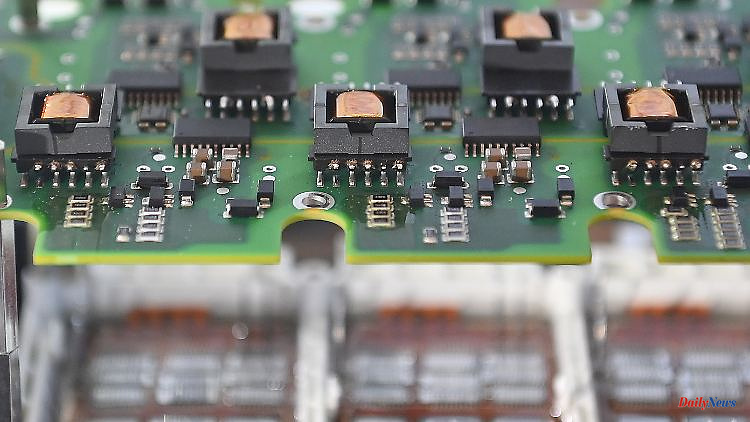So far, the Chinese government has been pursuing the plan of making the domestic chip industry competitive with subsidies. According to one report, this could soon be over, because the industry has so far fallen far short of expectations.
The race for technological leadership in computer chips is in full swing. Both in China and in the USA, the promotion of the chip industry has had the highest priority so far. Both countries have pumped billions into the strategically important industry. Until now. According to a report by the finance portal "Bloomberg", China wants to pause massive investments to build up its chip industry. After the lifting of lockdowns, mass tests and forced quarantine, the country is experiencing a corona wave that is putting a heavy strain on the world's second largest economy.
According to the report, senior officials are working to move away from costly subsidies that have had little success and encourage bribery, the finance portal quoted people familiar with the matter as saying. The move stands in stark contrast to Beijing's previous efforts to massively boost the country's chip industry.
Actually, China wanted to invest one trillion yuan, the equivalent of around 144 billion US dollars, in chip production in the country. Part of the sum should be paid out directly or in the form of tax relief earlier this year. The period was scheduled for a total of five years. In order to support the domestic chip industry, China is now looking for other measures instead.
According to the report, discussions are about reducing the cost of semiconductor materials. It is still unclear what further measures Beijing is considering to support the strategically important industry or whether the country will ultimately decide to abandon the investment-intensive approach. According to the report, it is also conceivable that the Chinese government will withdraw resources from other areas in order to finance its chip manufacturers.
According to the report, Chinese President Xi Jinping is said to be particularly dissatisfied with the so-called national investment fund for integrated circuits introduced in 2014. Known in the industry as the "Big Fund," the fund has raised around $45 billion in capital and backed numerous companies including China's chip-making champions Semiconductor Manufacturing International Corp. (SMIC) and Yangtze Memory Technologies Co. Nonetheless, according to the Chinese government, the industry has fallen far short of expectations.
According to "Bloomberg", Xi is frustrated that the tens of billions of dollars have not resulted in a breakthrough and that China still cannot compete with the US on an equal footing. On the contrary: the two largest Chinese semiconductor manufacturers, SMIC and Yangtze, have suffered particularly from the US sanctions.












